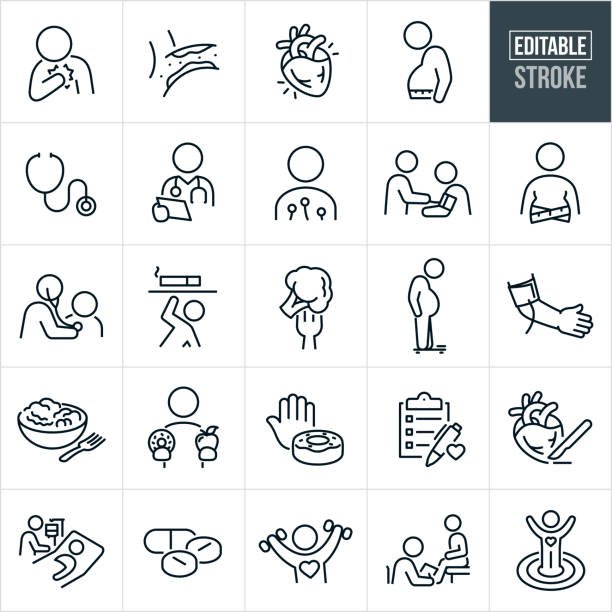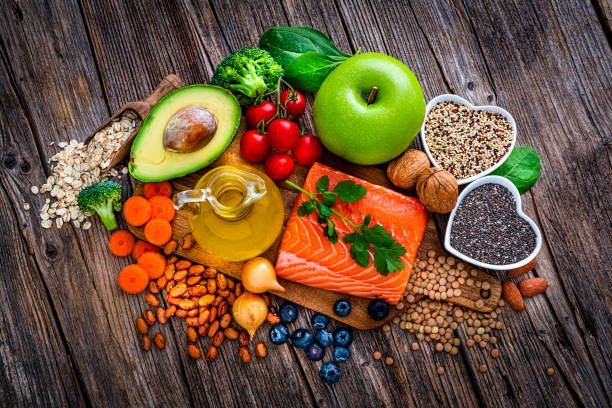
4 Nutrients Can Help Lower Cholesterol! A High-fiber Diet With Good Oils, a Healthy Diet Eliminates Bad Cholesterol
Most modern diets are high in fat and salt, causing many people to suffer from high cholesterol at a young age. If left unchecked, it is likely to lead to arteriosclerosis, arterial blockage, and eventually even heart diseases such as angina pectoris and myocardial infarction.
Fortunately, through early diet control, it is not difficult to lower cholesterol levels. But what foods should be eaten and what nutrients should be supplemented to effectively lower blood cholesterol?
This article will introduce you to 4 key nutrients that can help the body lower cholesterol, as well as related sources of intake.
1.Unsaturated fatty acids: Helps reduce bad cholesterol
Common fats and oils can be divided into the following three categories according to their different fat properties:
- Saturated fatty acid
- Monounsaturated fatty acids
- Polyunsaturated fatty acids
Saturated fatty acids are commonly found in various animal oils, mostly containing LDL (low-density lipoprotein, commonly known as bad cholesterol), while unsaturated fatty acids are mostly found in vegetable oils, among which monounsaturated fatty acids can effectively reduce LDL in the body, leaving HDL (high-density lipoprotein, commonly known as good cholesterol); polyunsaturated fatty acids will reduce the concentrations of both LDL and HDL, so monounsaturated fatty acids are considered more effective in preventing cardiovascular disease.
Monounsaturated fatty acids are mostly found in vegetable oils. Nuts such as almonds contain quite high levels of monounsaturated fatty acids. When cooking, you can also use olive oil, peanut oil, camellia oil, canola oil and safflower oil. However, since the smoke point of peanut oil does not reach 200 degrees, it is easy to produce excessive amounts of oil when frying and frying at high temperatures. Harmful oil fumes increase the risk of cancer, so it is recommended to choose cooking methods such as cold salad or cooked food mixed with oil.

2.Antioxidants: Prevent the production of oxidized cholesterol
Although LDL is called bad cholesterol, it also plays an important role in transporting cholesterol for use by body organs. However, after LDL is affected by free radicals and strong oxidants, it will form oxidized low-density lipoprotein, commonly known as oxidized cholesterol. Oxidized cholesterol can damage blood vessels, cause inflammation, and increase the risk of atherosclerosis. In addition to causing cardiovascular disease, it may also cause insomnia, forgetfulness, Alzheimer’s disease, stroke, diabetes and other diseases.
Fortunately, foods also contain many antioxidants, such as vitamin C and vitamin E, which can help fight against the oxidative behavior of free radicals and reduce the risk of cell aging and cancer. Foods such as guava, citrus, kiwi, strawberry or cherry, etc. Fruits, as well as soybean oil, sunflower oil, walnuts and other nut oils and whole grain foods can provide many nutrients with antioxidant effects.
3.Dietary fiber: combines with bile acid to accelerate cholesterol metabolism
Dietary fiber is divided into water-soluble and water-insoluble. Water-soluble dietary fiber has been proven to be combined with bile acid (cholesterol metabolite) and excreted from the body, prompting the liver to accelerate the metabolism of cholesterol to make up for the shortage of bile acid, lowering blood pressure. Medium cholesterol concentration.
For example, oatmeal has been certified by the U.S. Food and Drug Administration (FDA) as a food that effectively protects cardiovascular systems. It is recommended that 3 grams of oatmeal water-soluble fiber be consumed daily, which has the effect of lowering cholesterol. In addition, people can also consume more foods rich in water-soluble dietary fiber, including radishes, onions, pinto beans, pears, etc.

4.Plant sterols: similar in structure to cholesterol and can inhibit absorption
Dietary cholesterol (cholesterol absorbed from diet) is mostly derived from animal meat or oils, while plant sterols are found in plants. Because their chemical structures are similar to cholesterol, they can reduce the amount of cholesterol absorbed by the human body and achieve lower blood cholesterol. effect.
Among plant foods, foods rich in plant sterols include: milk, yogurt, orange juice, whole grains, vegetable oils, and nuts.












